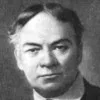Father:
May your holy name be honored;
may your Kingdom come.
Give us day by day the food we need.
Forgive us our sins,
for we forgive everyone who does us wrong.
And do not bring us to hard testing.[Πάτερ, ἁγιασθήτω τὸ ὄνομά σου·
ἐλθέτω ἡ βασιλεία σου·
τὸν ἄρτον ἡμῶν τὸν ἐπιούσιον δίδου ἡμῖν τὸ καθ᾽ ἡμέραν·
καὶ ἄφες ἡμῖν τὰς ἁμαρτίας ἡμῶν,
καὶ γὰρ αὐτοὶ ἀφίομεν παντὶ ὀφείλοντι ἡμῖν·
καὶ μὴ εἰσενέγκῃς ἡμᾶς εἰς πειρασμόν.]The Bible (The New Testament) (AD 1st - 2nd C) Christian sacred scripture
Luke 11: 2-4 (Jesus) [GNT (1976)]
(Source)
In Luke, Jesus offers this when asked by his disciples how to properly pray. It is known as "The Lord's Prayer," or, based on its initial words, the "Our Father" (Greek Πάτερ ἡμῶν, Latin Pater Noster).
This passage is paralleled, somewhat more simply, in Matthew 6:9-13. That prayer has seven petitions, while this one has (in most accepted versions) five. It is missing in Mark, leading to various hypotheses as to the Matthew/Luke origins. The JB suggests the Matthew prayer is "the more ancient," and liturgical use of the prayer is almost always based on the Matthew version.
Dante Alighieri crafted his own version of of this prayer in his Divine Comedy, "Purgatorio."
(Source (Greek)). Alternate translations:Our Father which art in heaven, Hallowed be thy name. Thy kingdom come. Thy will be done, as in heaven, so in earth. Give us day by day our daily bread. And forgive us our sins; for we also forgive every one that is indebted to us. And lead us not into temptation; but deliver us from evil.
[KJV (1611)]Father, may your name be held holy,
your kingdom come;
give us each day our daily bread,
and forgive us our sins,
for we ourselves forgive each one who is in debt to us.
And do not put us to the test.
[JB (1966); NJB (1985)]Father,
hallowed be your name,
your kingdom come.
Give us each day our daily bread.
Forgive us our sins,
for we also forgive everyone who sins against us.
And lead us not into temptation.
[NIV (2011 ed.)]Father, uphold the holiness of your name.
Bring in your kingdom.
Give us the bread we need for today.
Forgive us our sins,
for we also forgive everyone who has wronged us.
And don’t lead us into temptation.
[CEB (2011)]Father, may your name be revered as holy.
May your kingdom come.
Give us each day our daily bread.
And forgive us our sins,
for we ourselves forgive everyone indebted to us.
And do not bring us to the time of trial.
[NRSV (2021 ed.)]
Further notes:
- The NRSV and NIV suggest the reference to "Father" (11:2) is given in some manuscripts as "Our Father in heaven."
- The NRSV and JB say some manuscripts (perhaps from baptismal liturgies) read the "kingdom come" line (11:2) as "May your Holy Spirit come down on us and cleanse us."
- The NRSV and NIV say some manuscripts add a line after "your kingdom come" (11:2): "Your will be done, on earth as in heaven."
- The GNT and NRSV suggests the third line (11:3) can also end "food for the next day" or "bread for tomorrow."
- The NIV says that in the Greek the "everyone who sins against us" line (11:4) can be read "everyone who is indebted to us."
- The NRSV suggests that the last line (11:4) can also be read "us into temptation."
- The NRSV and NIV note some manuscripts add to the end of the prayer, "but rescue us from the evil one" or "but rescue us from evil."
Quotations about:
needs
Note not all quotations have been tagged, so Search may find additional quotes on this topic.
Our Father who art in heaven,
hallowed be thy name.
Thy kingdom come.
Thy will be done
on earth as it is in heaven.
Give us this day our daily bread,
and forgive us our trespasses,
as we forgive those who trespass against us,
and lead us not into temptation,
but deliver us from evil.
For thine is the kingdom,
and the power, and the glory,
for ever and ever.[Πάτερ ἡμῶν ὁ ἐν τοῖς οὐρανοῖς·
ἁγιασθήτω τὸ ὄνομά σου·
ἐλθέτω ἡ βασιλεία σου·
γενηθήτω τὸ θέλημά σου,
ὡς ἐν οὐρανῷ καὶ ἐπὶ γῆς·
τὸν ἄρτον ἡμῶν τὸν ἐπιούσιον δὸς ἡμῖν σήμερον·
καὶ ἄφες ἡμῖν τὰ ὀφειλήματα ἡμῶν,
ὡς καὶ ἡμεῖς ἀφήκαμεν τοῖς ὀφειλέταις ἡμῶν·
καὶ μὴ εἰσενέγκῃς ἡμᾶς εἰς πειρασμόν,
ἀλλὰ ῥῦσαι ἡμᾶς ἀπὸ τοῦ πονηροῦ.
Ὅτι σοῦ ἐστιν ἡ βασιλεία
καὶ ἡ δύναμις καὶ ἡ δόξα
εἰς τοὺς αἰῶνας. Ἀμήν.]The Bible (The New Testament) (AD 1st - 2nd C) Christian sacred scripture
Matthew 6: 9-13 “The Lord’s Prayer” (Jesus) [Episcopal Book of Common Prayer (1928)]
(Source)
Jesus offers this as an example of how to pray (versus the wordier prayers of the "pagans"). Because of this, it is known as "The Lord's Prayer," or, based on its initial words, the "Our Father" (Greek Πάτερ ἡμῶν, Latin Pater Noster).
This passage is paralleled, somewhat more simply, in Luke 11:2-4. That prayer has five petitions, while this one has (in most accepted versions) seven. It is missing in Mark, leading to various hypotheses as to the Matthew/Luke origins. The JB suggests the Matthew prayer is "the more ancient," and liturgical use of the prayer is almost always based on the Matthew version.
Dante Alighieri crafted his own version of of this prayer in his Divine Comedy, "Purgatorio."
The (here italicized) concluding doxology ("For thine is the kingdom ... Amen") is not in the oldest Greek manuscripts (see below for more discussion).
(Source (Greek)). Alternate translations:Our Father which art in heaven,
Hallowed be thy name.
Thy kingdom come.
Thy will be done
in earth, as it is in heaven.
Give us this day our daily bread.
And forgive us our debts,
as we forgive our debtors.
And lead us not into temptation,
but deliver us from evil:
For thine is the kingdom,
and the power, and the glory,
for ever. Amen.
[KJV (1611)]Our Father in heaven,
may your name be held holy,
your kingdom come,
your will be done,
on earth as in heaven.
Give us today our daily bread.
And forgive us our debs,
as we have forgiven those who are in debt to us.
And do not put us to the test,
but save us from the evil one.
[JB (1966)]Our Father in heaven:
May your holy name be honored;
may your Kingdom come;
may your will be done on earth as it is in heaven.
Give us today the food we need.
Forgive us the wrongs we have done,
as we forgive the wrongs that others have done to us.
Do not bring us to hard testing,
but keep us safe from the Evil One.
[GNT (1976)]Our Father in heaven,
may your name be held holy,
your kingdom come,
your will be done,
on earth as in heaven.
Give us today our daily bread.
And forgive us our debts,
as we have forgiven those who are in debt to us.
And do not put us to the test,
but save us from the Evil One.
[NJB (1985)]Our Father who is in heaven,
uphold the holiness of your name.
Bring in your kingdom
so that your will is done on earth as it’s done in heaven.
Give us the bread we need for today.
Forgive us for the ways we have wronged you,
just as we also forgive those who have wronged us.
And don’t lead us into temptation,
but rescue us from the evil one.
[CEB (2011)]Our Father in heaven,
may your name be honored.
May your kingdom come.
May what you want to happen be done
on earth as it is done in heaven.
Give us today our daily bread.
And forgive us our sins,
just as we also have forgiven those who sin against us.
Keep us from sinning when we are tempted.
Save us from the evil one.
[NIV (2011 ed.)]Our Father in heaven,
may your name be revered as holy.
May your kingdom come.
May your will be done
on earth as it is in heaven.
Give us today our daily bread.
And forgive us our debts,
as we also have forgiven our debtors.
And do not bring us to the time of trial,
but rescue us from the evil one.
[NRSV (2021 ed.)]
Further Notes:The final doxology ("For thine is the kingdom ...") is not in the oldest Greek texts, and is usually included as a footnote in modern Bible translations (the translators of the King James Version mistakenly thought they had the oldest texts and so included it verse 13). Adding such a doxology at the end of prayers was common in the early Church liturgies. Many Protestant denominations of Christianity include it in their recitation of the Lord's Prayer; in Catholic Masses, a version is included shortly after it. Beyond the KJV inclusion above, other translations include:
- On "daily bread," JB/NJB notes the Greek word here is "obscure," and may mean "necessary for subsistence" or "for tomorrow." NRSV and GNT similarly note an alternative, "Give us today our bread for tomorrow."
- NRSV notes an alternative translation, "And do not bring us into testing ..."
- JB/NJB and NRSV notes a final line alternative translation: "... but rescue us from evil."
- The JB/NJB footnotes Matthew's recurring use of the number 7, here including seven petitions.
For yours is the kingdom and the power and the glory for ever. Amen.
[JB/NJB]
For the kingdom and the power and the glory are yours forever. Amen.
[NRSV]
For yours is the kingdom, and the power, and the glory forever. Amen.
[GNT]
See also here for additional discussion about the prayer.
In your prayers do not babble as the gentiles do, for they think that by using many words they will make themselves heard. Do not be like them; your Father knows what you need before you ask him.
[Προσευχόμενοι δὲ μὴ βατταλογήσητε ὥσπερ οἱ ἐθνικοί, δοκοῦσιν γὰρ ὅτι ἐν τῇ πολυλογίᾳ αὐτῶν εἰσακουσθήσονται. μὴ οὖν ὁμοιωθῆτε αὐτοῖς· οἶδεν γὰρ ὁ πατὴρ ὑμῶν ὧν χρείαν ἔχετε πρὸ τοῦ ὑμᾶς αἰτῆσαι αὐτόν.]
The Bible (The New Testament) (AD 1st - 2nd C) Christian sacred scripture
Matthew 6: 7-8 (Jesus) [NJB (1985)]
(Source)
No Synoptic parallels.
(Source (Greek)). Alternate translations:But when ye pray, use not vain repetitions, as the heathen do: for they think that they shall be heard for their much speaking. Be not ye therefore like unto them: for your Father knoweth what things ye have need of, before ye ask him.
[KJV (1611)]In your prayers do not babble as the pagans do, for they think that by using many words they will make themselves heard. Do not be like them; your Father knows what you need before you ask him.
[JB (1966)]When you pray, do not use a lot of meaningless words, as the pagans do, who think that their gods will hear them because their prayers are long. Do not be like them. Your Father already knows what you need before you ask him.
[GNT (1976)]When you pray, don’t pour out a flood of empty words, as the Gentiles do. They think that by saying many words they’ll be heard. Don’t be like them, because your Father knows what you need before you ask.
[CEB (2011)]When you are praying, do not heap up empty phrases as the gentiles do, for they think that they will be heard because of their many words. Do not be like them, for your Father knows what you need before you ask him.
[NRSV (2021 ed.)]
Love is not all: it is not meat nor drink
Nor slumber nor a roof against the rain;
Nor yet a floating spar to men that sink
And rise and sink and rise and sink again;
Love can not fill the thickened lung with breath,
Nor clean the blood, nor set the fractured bone;
Yet many a man is making friends with death
Even as I speak, for lack of love alone.
Throw the lumber over, man! Let your boat of life be light, packed with only what you need — a homely home and simple pleasures, one or two friends, worth the name, someone to love and someone to love you, a cat, a dog, and a pipe or two, enough to eat and enough to wear, and a little more than enough to drink; for thirst is a dangerous thing.
Jerome K. Jerome (1859-1927) English writer, humorist [Jerome Klapka Jerome]
Three Men in a Boat (To Say Nothing of the Dog), ch. 3 (1889)
(Source)
There is a quality even meaner than outright ugliness or disorder, and this meaner quality is the dishonest mask of pretended order, achieved by ignoring or suppressing the real order that is struggling to exist and to be served.
Jane Jacobs (1916-2006) American-Canadian journalist, author, urban theorist, activist
The Death and Life of Great American Cities, Introduction (1961)
(Source)
On urban planning that disregards actual needs for gratuitous features that please outside observers.
Thirst, hunger, and nakedness, are positive evils: but wealth is relative; and a prince who would be rich in a private station, may be exposed by the increase of his wants to all the anxiety and bitterness of poverty.
Edward Gibbon (1737-1794) English historian
The History of the Decline and Fall of the Roman Empire, ch. 61 (1776-88)
(Source)
Old wine, and an old friend, are good provisions.
George Herbert (1593-1633) Welsh priest, orator, poet.
Jacula Prudentum, or Outlandish Proverbs, Sentences, &c. (compiler), # 136 (1640 ed.)
(Source)
In truth, poverty is an anomaly to rich people. It is very difficult to make out why people who want dinner do not ring the bell.
Walter Bagehot (1826-1877) British businessman, essayist, journalist
“The Waverley Novels,” National Review (1858-04)
(Source)
A review of Sir Walter Scott's very popular and lengthy book series of that name, which includes his (today) most famous, Ivanhoe.
That man is the richest whose pleasures are cheapest.
Any man with few needs appears a menace to the rich for he is always in a position to escape from them, and the tyrants see that thus they lose a slave.
[Tout homme qui a peu de besoins semble menacer les riches d’être toujours prêt à leur échapper. Les tyrans voient par là qu’ils perdent un esclave.]
Nicolas Chamfort (1741-1794) French writer, epigrammist (b. Nicolas-Sébastien Roch)
Products of Perfected Civilization [Produits de la Civilisation Perfectionée], Part 1 “Maxims and Thoughts [Maximes et Pensées],” ch. 3, ¶ 266 (1795) [tr. Mathers (1926)]
(Source)
(Source (French)). Alternate translations:Any man whose needs are few seems to threaten the rich with the possibility of his escaping them. Tyrants are thereby faced with the prospect of losing a slave.
[tr. Merwin (1969)]Any man who has few needs seems to threaten the rich with his readiness to escape from them. Thereby tyrants realize that they are losing a slave.
[tr. Pearson (1973)]Every man who has few needs seems to menace the wealthy with the constant threat of escaping from them. Tyrants see in such a proposition the loss of a slave.
[tr. Siniscalchi (1994)]Anyone whose needs are small seems threatening to the rich, because he's always ready to escape their control. This is how tyrants recognize that they're losing a slave.
[tr. Parmée (2003)]
Dark stratagems, and treachery, to relieve
The coward’s wants, were by mankind devis’d.[δόλοι δὲ καὶ σκοτεινὰ μηχανήματα
χρείας ἀνάνδρου φάρμαχ᾽ εὕρηται βροτοῖς.]Euripides (485?-406? BC) Greek tragic dramatist
Bellerophon [Βελλεροφῶν], frag. 288 (TGF) (c. 430 BC) [tr. Wodhull (1809)]
(Source)
Nauck frag. 290, Barnes frag. 42, Musgrave frag. 8. (Source (Greek)). Alternate translations:Tricks and dark schemes are mankind's invention as
cowardly remedies against need.
[tr. Collard, Hargreaves, Cropp (1995)]Trickery and devious devices are man’s unmanly means to meet his needs.
[tr. Stevens (2012)]
But this I can tell you true — until you divest yourself of the notion that you are a collection of needs, an empty vessel that someone else must fill up, there will be no safe place to harbor yourself, no safe shore to reach. As long as you think mostly of getting, you will have nothing real to give.
Merle Shain (1935-1989) Canadian journalist and author
Hearts That We Broke Long Ago, ch. 8 (1985)
(Source)
You would think we would envy only what we love, for being loveable. But no, we envy those the world loves, because we care less for being loveable than being loved.
James Richardson (b. 1950) American poet
“Vectors: 56 Aphorisms and Ten-second Essays,” Michigan Quarterly Review, # 37 (Spring 1999)
(Source)
Totalitarianism appeals to the very dangerous emotional needs of people who live in complete isolation and in fear of one another.
Hannah Arendt (1906-1975) German-American philosopher, political theorist
Interview (1973-10) with Roger Errera, Office de Radiodiffusion-Télévision Française (ORTF)
This portion of the interview was published in The New York Review of Books (1978-10-26).
Other parts of the interview were turned into an episode of the French TV series "Un certain regard," directed by Jean-Claude Lubtchansky, first broadcast 1974-07-06.
If you have a garden in your library, we shall have all we want.
[Si hortum in bibliotheca habes, deerit nihil.]Marcus Tullius Cicero (106-43 BC) Roman orator, statesman, philosopher
Epistulae ad Familiares [Letters to Friends], Book 9, Letter 4, sec. 1 (9.4.1), to Marcus Terentius Varro (46 BC) [tr. Williams (Loeb) (1928)]
(Source)
In context, this is about Cicero discussing visiting Varro, and that he'll be happy to do so if the latter has a garden and a library, either to provide for body (vegetables) and mind, or else a garden library to have a pleasant place to think and talk during his visit.
The phrase, out of context and in more popular usage, changes the pronouns a bit, and is usually presented as a broad suggestion that all a person needs at their house to meet their mental and emotional needs is a garden and a library, e.g., the ubiquitous "If you have a garden and a library, you have everything you need."
(Source (Latin)). Alternate translations:Let there be a garden in your Librarie, it is no matter for the rest.
[tr. Webbe (1620)]As your library is situated in your garden, I shall want nothing to complete my two favorite amusements; reading and walking.
[tr. Melmoth (1753), 8.14]If you have a garden in your library, everything will be complete.
[tr. Shuckburgh (1899), # 464]If you have a kitchen garden in your library we shall lack for nothing.
[tr. Shackleton Bailey (1978), # 180]If you have a garden in your library, you’ve got it all.
[tr. @sentantiq (2011)]
Human beings are more alike than unalike. There’s no real mystique. Every human being, every Jew, Christian, back-slider, Muslim, Shintoist, Zen Buddhist, atheist, agnostic, every human being wants a nice place to live, a good place for the children to go to school, healthy children, somebody to love, the courage, the unmitigated gall, to accept love in return, some place to relax on Saturday or Sunday night, and some place to experience their God.
Maya Angelou (1928-2014) American poet, memoirist, activist [b. Marguerite Ann Johnson]
“The Art of Fiction,” Paris Review, #116, Interview with George Plimpton (1990)
(Source)
A similar passage, from a speech at Ohio Dominican College (9 Dec 1993): "Humans are wonderfully different and marvelously alike. Human being are more alike than unalike. Whether in Paris, Texas, or Paris, France, we all want to have good jobs where we are needed and respected and paid just a little more than we deserve. We want healthy children, safe streets, to be loved and have the unmitigated gall to accept love. If we are religious, we want a place to perpetuate God. If not, we want a good lecture every once in a while. And everyone wants someplace to party on Saturday nights."
I was often humiliated to see men disputing for a piece of bread, just as animals might have done. My feelings on this subject have very much altered since I have been personally exposed to the tortures of hunger. I have discovered, in fact, that a man, whatever may have been his origin, his education, and his habits, is governed, under certain circumstances, much more by his stomach than by his intelligence and his heart.
François Arago (1786-1853) French Catalan mathematician, physicist, astronomer, politician
Biographies of Distinguished Scientific Men, “The History of My Youth” (1859) [tr. Smyth, Powell, Grant]
(Source)
Goe not for every griefe to the Physitian, nor for every quarrell to the Lawyer, nor for every thirst to the pot.
George Herbert (1593-1633) Welsh priest, orator, poet.
Jacula Prudentum, or Outlandish Proverbs, Sentences, &c. (compiler), # 290 (1640 ed.)
(Source)
A comfortable house is a great source of happiness. It ranks immediately after health and a good conscience.
Sydney Smith (1771-1845) English clergyman, essayist, wit
Letter (1843-09-29) to Lord Murray
(Source)
Countries like ours are full of people who have all the material comforts they desire, yet lead lives of quiet (and at times noisy) desperation, understanding nothing but the fact that there is a hole inside them and that however much food and drink they pour into it, however many motorcars and television sets they stuff it with, however many well-balanced children and loyal friends they parade around the edges of it, however much contentment they place between it and their own consciousness, it aches.























